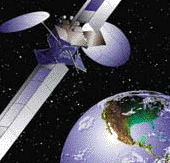Title of the Paper: Low cost undergraduate experiments with lasers and personal computer
DOWNLOAD FULL PDF
Authors: J. T. Andrews, B. K. Gupta,
K. Bose and Arun Kumar
Abstract: Few interesting high school level experiments using laser and personal computer are demon-
strated with a budget of US $ 100.00, for each experiment (excluding the price of computer). The
experiments demonstrated are single-slit diffraction, characterization of a Gaussian beam and char-
acterization of an optical fiber. Suggestions for using the same setup to demonstrate few other
experiments using laser are also given.
Keywords:
Title of the Paper: Teachers’ Outlook on
Improvement of Quality of Engineering Education in India
DOWNLOAD FULL PDF
Authors: K G Viswanadhan
Abstract: Engineers are the initiators, facilitators, and implementers of the technological development of a nation. If we understand the relative strengths and weaknesses of the engineering programmes with respect to different factors as perceived by the stakeholders who are constantly in touch with the programme, the concerned organizations can create some action plans for improving the state of engineering education. This paper presents a study to prioritize the factors for the quality improvement of undergraduate engineering education in India. The studies include multi-criteria, multilevel decision-making based on the subjective opinions of the respondents. Analytic Hierarchy Process (AHP), which is a powerful tool for such a situation, has been utilized for the study. ‘Faculty Adequacy’, ‘Student Performance’, ‘R&D activities’, ‘Financial Resources’ and ‘Performance Appraisal & Development mechanism’ came out as the most critical factors, which need immediate attention for the improvement of quality of engineering education in India.
Keywords: Quality assessment, AHP, Engineering in India, Quality indicators, Quality Barriers
Title of the Paper: Implementation and Assessment of Interactive Power Electronics Course
DOWNLOAD FULL PDF
Authors: Ali Dastfan
Abstract: In recent years interactive web based courses has become very popular among teachers and more attention has been paid to it at universities. In this paper a web based interactive software has been designed and implemented to teach power electronics subject at undergraduate level in Shahrood University of Technology. The proposed course has seventeen parts based on power electronics syllabus in Iranian university. Each part includes a brief HTML text to explain circuit and necessary mathematical theory followed by Java applet to simulate circuit. It has been tried to prepare Java applets more attractive and easier to use compare to other available interactive software. Output is also available in forms of graphics and data that can be exported into spreadsheets programs like Excel for producing diagrams. The web-based interactive course was evaluated in offline use with a group of undergraduate students. Participants in the trials reported that the materials were engaging and assisted their learning about power electronics converter. This version of the course design was found effective in learning, and with further development, it may promises to be a powerful and flexible approach to supporting learning for students in power electronics courses.
Keywords: Interactive teaching, power electronics, Java applets, Web-based education.
|


